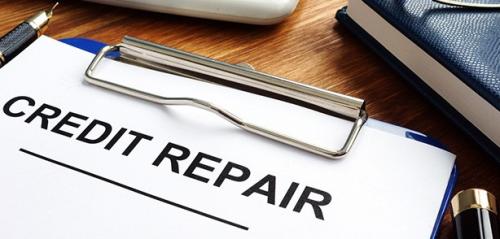Credit Repair Vs Credit Building: Things You Need To Know

Sometimes your credit score is not what you want. You are most likely to look for opportunities that can help you in raising credit score. However, a lot of people think that credit building and credit repair are the same. This is not necessarily true.
Credit Repair
Credit repair is about improving poor credit by removing unfair, inaccurate and unverified information from your credit report. This type of information appears on your report because of mistakes, or miscommunication with creditors. Negative tradelines in the credit report are because of identity theft. This leaves a negative impact on your credit.
An organization offering credit restoration services help in removing these items from your credit report. This organization works with your creditors and credit reporting agencies. However, you have to pay a monthly fee.
If you don't want to pay, you can do this on your own. You just need to dispute this information with the credit bureaus. However, if your credit report is too complicated, you should avail credit restoration services.
In case no inaccurate, unverified or unfair items are in your credit report, credit restoration services cannot help.
What To Watch Out For
A reputable credit repair company can help in removing negative information. However, this is not guaranteed. You have to watch out for red flags while choosing an organization. Be aware of scams. So, before you hire a company, learn about your credit rights. A legitimate company always explains your credit rights.
What Is Credit Building?
Credit building is about building a good credit. While credit repair removes negative information, credit building adds new positive information to the report. Whether you are repairing your credit score or building it, there is no quick fix. It takes time to repair and build credit.
Credit building starts with finding out your current standings. Get a copy of your credit score from all three credit bureaus. You can get a free copy of the report from TransUnion, Equifax and Experian once a year.
Go through the information on your credit report and spot the areas that can be improved. You should focus on the factors affecting your FICO score. These factors include:
Credit mix
New credit
Length of credit history
Amounts owed
Payment history
Credit Mix
Your credit mix makes up 10% of your score. Credit mix is the types of credit you have. Having a good credit mix is good for a credit report. Your credit mix can include mortgage, credit cards, student loans, auto loans and more. However, this factor is not going to have a lot of influence on your credit.
New Credit
Every new application for the credit card is followed by a hard inquiry on your credit report by the creditor. A hard inquiry can reduce your credit score. So, avoid applying for too many credit accounts in a short span of time. However, new credit makes up 10% of the score.
Length Of Credit History
This factor makes up 15% of your credit score. It is in terms of the average age of account and length of your credit history. As you use your credit, the length of your credit history is increased.
Payment History
Your payment history makes up 35% of your score. This makes your payment history the most important factor. If you have late payments or collection accounts dropping your credit score, work on these accounts. Start making monthly payments on time.
Amounts Owed
Amounts owed makes up 30% of your score. This is also an important factor. It is driven by credit card utilization rate. Credit utilization ratio below 30% is good for your credit score.
Post Your Ad Here
Comments